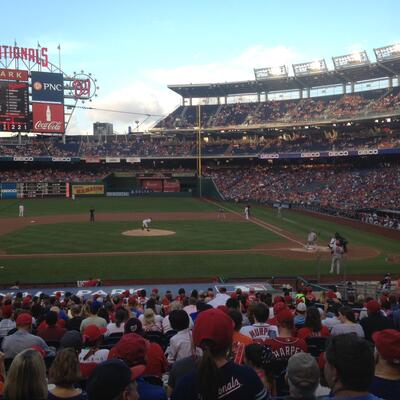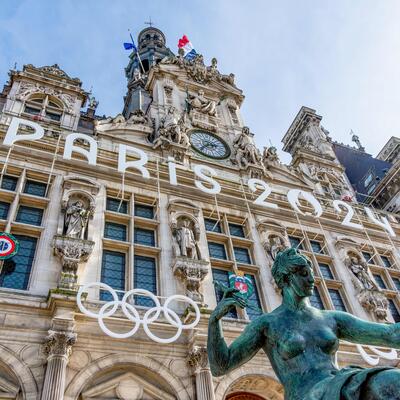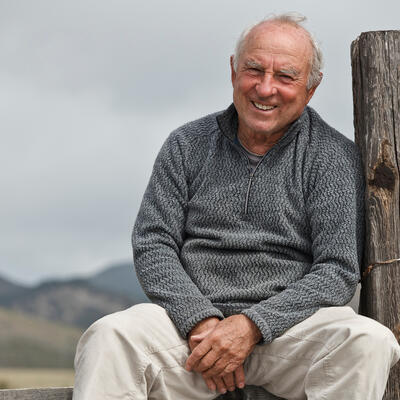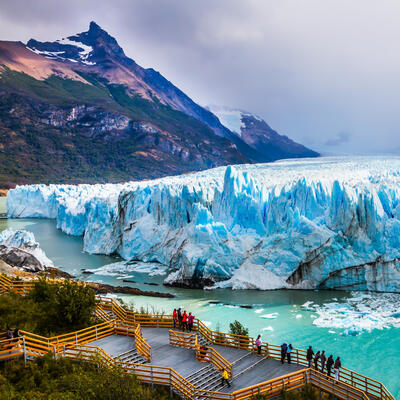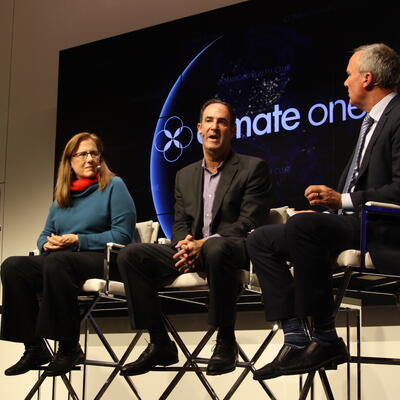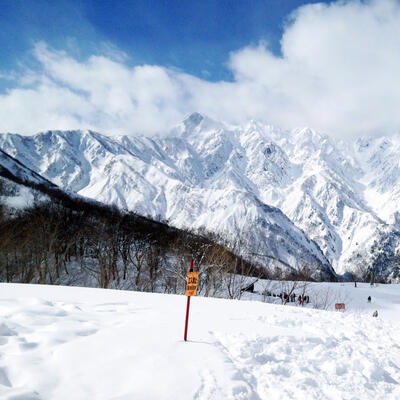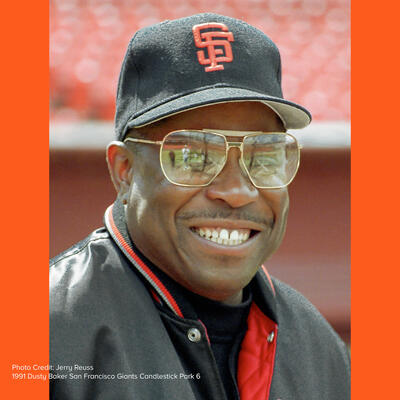
How Pro Sports Can Be a Player in Climate
Guests
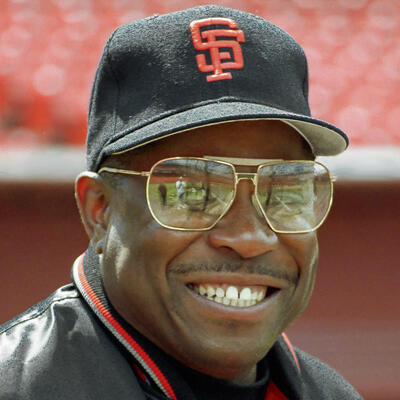
Dusty Baker
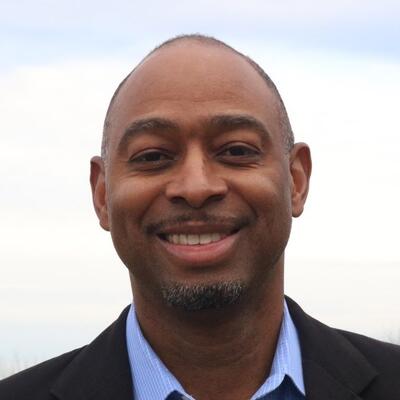
Roger McClendon
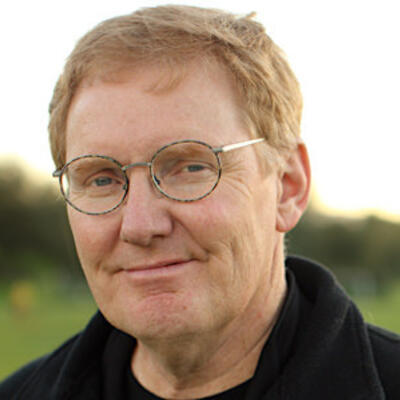
Jim Thompson
Summary
From stadiums packed with fans, to food, beer, and waste – pro sports can have a big carbon footprint. But could the core values of athletics — integrity, teamwork, and commitment — be the same values we need to tackle the climate challenge?
”Doing sports the right way is more important now than ever,” says Jim Thompson, Founder of the Positive Coaching Alliance. “We spent a lot of time as adults trying to get kids to do certain things. What if we spend our time trying to encourage them to become the kind of people who want to do the right thing?”
Thompson, whose PCA trains youth sports coaches around the country, is a newly converted climate evangelist. “Our country, the whole world is gonna need leaders – people who do the right thing when it matters,” he says. “That's my definition of character, when you do the right thing when it matters, and what happens in the next 10 years matters a lot.”
So do pro athletes have a special role in getting their fans and teams to talk about climate?
“I think somebody needs to prompt the questions out of them, because I don't think most people aren’t going to just come out and just start talking about climate change,” says Dusty Baker, a special advisor with the San Francisco Giants who had a 19-year career as a hard-hitting outfielder and a 20-year career as a big-league manager.
Baker, who is also an avid bird hunter and solar power entrepreneur, admires the star athletes who do speak out on climate or other social issues, but he understands why others may be reluctant to do so. “You spend all your life trying to get to this goal” he explains,”and you realize it's a very limited period of time and also there's somebody always trying to take your job.”
Ultimately, the best agents for climate action in the sports arena might be the businesses and the customers – that is, teams and their fans.
“Through sport and food we have a huge opportunity to influence the world in a positive way,” says Roger McClendon, Executive Director with the Green Sports Alliance, an association of teams and venues employing sports as a vehicle to promote healthy sustainable communities throughout the world.
McClendon previously served as the first chief sustainability officer with Yum! Brands, whose holdings include Taco Bell, Pizza Hut and KFC restaurants, where he challenged the company to run cleaner.
“[Pro teams] are businesses but they have the responsibility to serve their consumers and their consumers are fans,” he says. “When the fans or the customers start saying this is important to them, then usually businesses start to listen.
Related links:
Positive Coaching Alliance
Baker Energy Team
Green Sports Alliance
NBA Green
How climate change is affecting outdoor skating (NHL.com)
San Francisco Giants reclaim the Green Glove Award (MLB.com)
Full Transcript
Greg Dalton: This is Climate One, changing the conversation about energy, the economy, and the environment.
Greg Dalton: Could the core values of athletics be the same values needed to tackle the climate challenge?
Jim Thompson: Doing sports the right way is more important now than ever that we have to help kids become the kind of people who want to do the right thing. (8’’)
Greg Dalton: Do pro athletes have a special role in getting their fans and teams to talk about climate? (5’’)
Dusty Baker: I think somebody needs to prompt the questions out of them because I don't think most people are going to just come out and just start talking about climate change. (8’’)
Greg Dalton about the rest of us who just want to watch the game? (4’’)
Roger McClendon: One opportunity for fans is to hold those stadiums and those teams accountable, you know. When the fans or the customers start saying this is important to them, then usually businesses start to listen. (11’’)
Greg Dalton: How Pro Sports Can Be a Climate Player. Up next on Climate One.
Greg Dalton: How can sports fans and their favorite pro teams get each other to up their climate game? Climate One conversations feature oil companies and environmentalists, Republicans and Democrats, the exciting and the scary aspects of the climate challenge. I’m Greg Dalton.
Greg Dalton: From stadiums packed with fans, to food, beer, and waste – pro sports can have a big carbon footprint.
Roger McClendon: Through sport and food, we have a huge opportunity to influence the world in a positive way.
GreGreg Daltong: Roger McClendon is executive director with the Green Sports Alliance, an association of teams and venues employing sports as a vehicle to promote healthy sustainable communities throughout the world. He previously served as the first chief sustainability officer with Yum! Brands, whose holdings include Taco Bell, Pizza Hut and KFC restaurants, where he challenged the company to run cleaner.
Jim Thompson: Our kids and their kids are gonna be challenged in ways that we have not been challenged.
Greg Dalton: Jim Thompson is a former lecturer at Stanford Business School, and founder of the Positive Coaching Alliance, which trains youth sports coaches around the country. He’s also a newly converted climate evangelist.
Dusty Baker: I’ve been called a nature boy and I’m trying to raise my son to be a nature boy.
Greg Dalton: Dusty Baker is a special advisor with the San Francisco Giants. He had a 19-year career as a hard-hitting outfielder with Atlanta Braves and Los Angeles Dodgers, and a 20-year career as a manager of the San Francisco Giants, Chicago Cubs, and Cincinnati Reds. He’s also an avid bird hunter, as well as a solar power entrepreneur. I began our conversation by asking Dusty about a formative experience with electricity he had as a young boy.
Dusty Baker: Well, what I did was I stuck a screwdriver in the socket.
Greg Dalton: How that worked out?
Dusty Baker: It didn’t work out too good and it didn’t end very well because when my dad got home he’s like, what happened here? And there is a black soot mark all over the socket and I said, dad, you know, I don’t know. And he goes, well, I tell you what, why don’t you go get my belt and then maybe this will refresh your memory. And so when he get back, I said, yeah, yeah, yeah, dad just coming to me now. And he didn’t whip me because he know I was scared to death by what happened with electricity. And so like I was like marked for life. I was afraid of electricity.
Greg Dalton: And so you’re afraid of electricity and a few years ago you founded a solar power electric company.
Dusty Baker: Well, it’s called Baker Energy Team, actually I lost the job I think with Cincinnati. And so I said, well, I couldn't get a job in baseball and I said, well, nobody else wants me on their team, I'll start my own team. So I started Baker Energy Team but I built a home 13 years ago where my project manager is my best friend. And I said hey man, you know, I can come up with all these ideas, but I can't really build anything. I’m more of a farmer I can grow anything. And I said, okay, I don’t wanna pay that $2,500 a month electric bill that my neighbor is paying. So I said, okay why can’t we have a solar pool? He goes, okay, boom he drew it up. And I said, okay, I need a solar well that’s going to irrigate the outside. And he goes okay, he drew it up. And I said, well, we might not have enough power we’re gonna have a ground mount in the back behind my grids I have a roof mount on my barn and a carport. So, I’m not off the grid but I’m almost zero and out in energy. And I said, well, I think everybody could use this so I started studying up on it and discovered that, you know, I want to leave a better carbon footprint for my kids and my kid’s kids which I don’t have yet but I’m hoping to have soon. And, you know, to leave a better world for them.
Greg Dalton: And you also went to a solar energy conference, I saw it, and you saw a real lack of diversity.
Dusty Baker: Correct.
Greg Dalton: So tell us about that.
Dusty Baker: You know, I went to -- actually I was in Chicago and I met a gentlemen in the hotel bar, imagine that, and he says hey, _____ [00:08:03] and I said yeah, he goes I’m from Iowa but I live in San Diego and he says, well, I wanna hang with you. And so he gave me a card, and I said, well, okay, I’ll call you, well I didn’t call him. And then the next year I was in the same hotel and the same guy said, thought you’re gonna call me? Oh, give me a number and I will call this time for sure. So he says, I’m Ted Roth, you know, with Roth Partners. And he says, come down to our conference that we’re gonna have down in Newport. And I went down there and I said, wow, I looked around, and, you know, I saw very few minorities, you know, I saw quite a few minorities from Japan and Korea but very few people that look like me and there are also very few women. So I said, this is kind of reminds me of the high school I went to, my family is the only black family in the community and the only blacks in high school were me and my brother. So I said, you know, we need this as a nation but we also need to get minority people more and more involved. And also I was looking for a way to make a living and make a better impact on the world.
Greg Dalton: It’s actually the fossil fuel industry actually has more diversity than the clean energy industry.
Dusty Baker: I believe that.
Greg Dalton: Jim Thompson. Tell us about your journey from Stanford business school, Bill McKibben other people have influenced you. And then you recently completed the climate reality training just a week or so ago. So tell us about your journey from Stanford to being a new climate evangelist.
Jim Thompson: Sure. Last fall I told the boards after 20 years that I was ready to move out of being the CEO of Positive Coaching Alliance and I asked for a sabbatical and they gave me one. And so I've just been reading and studying and talking to people and the more I learned about the climate crisis, the more depressed I got. It’s really way worse than what you read in the papers or, you know. When I was in Minnesota for this climate reality training we found out that on Thursday, this number is so big it's really hard to imagine 10 billion tons of ice melted in the Arctic on Thursday. And then on Friday, 11 billion tons and the event there’s a lot of scientists there, one from the University of Minnesota and somebody asked them, you know, can this be turned around? And he said, yeah, you know, if we turn this thing around that ice might come back in a thousand years. So the more I learned about it and the other part of it is a friend of mine asked me, why is this so important to you and I said, I’ve learned a lot from starting Positive Coaching Alliance. We have 18 chapters around the country $11 million budget. We did almost 3,500 live workshops all around the country last year. So I learned a lot building Positive Coaching Alliance and I don’t know if I can have an impact on the climate crisis but I feel like I got to try. I’ve got to take what I’ve learned and try to make a difference.
Greg Dalton: We'll get into that. So Roger, tell us about your journey from working at Yum! Brands to the Green Sports Alliance and what you're trying to do there to use sports as a lever to get that sustainability.
Roger McClendon: So yeah, I started with Yum! Brands over 24 years ago and it was a great journey. Obviously you guys know PepsiCo is great marketing and leadership company and was really interested in, you know, how I could impact the company in a bigger way. So I started as an engineer doing some basic equipment design, layout design, and running operations or supporting operations in the calendar in that way. And something kind of came to mind, you know, when I started looking at how to have a bigger impact in the company. And I brought a proposal to the CEO to talk about what we need to do as a leader in the space of sustainability. We didn't have the function we really didn't have the focus we were kind of just doing business as usual. And I recognize this was a major challenge for the company that would be coming up in generation from generation and primarily around not only the customers that we serve but how do we diminish the supply chain. The one impact you know that we have on the community around common resource availability like freshwater the quality and food safety of the products that we wanted to provide. And what it showed was we had a major gap in our business. It was risk mitigation it was brand reputation and our P&L quite frankly that we were figuring out how are we going to strategically manage across the globe. We were in 146 different countries at the time building about six restaurants every day around the world. And so I presented that, you know, proposal to him and he gladly accepted it and he said, you know, then you’re it, you’re the CSO, you’re the Chief Sustainability Officer. And I kind of like out of bounds, like oh well, what did I get myself into, you know, kind of like Atlas, you know what do we gonna do now. And so the first thing was education. So quickly freshened up you know, my knowledge about the subject and started working with our supply chain working with our general managers understanding the business case and translating the language of climate into the language of real language of corporations and business. And it could be that translation of reducing your and mitigating your environmental impact and carbon reduction actually translated into value for the company. Worked that strategy all the way up to the highest levels of our stakeholders which included our Board of Directors our large institutional shareholders asset, you know, folks like BlackRock that held large shares of our company and talked about the strategy that we could implement to make ourselves a better company. We also work with marketing as well to talk about what we're doing at a local level to engage the community and engage our customers. And so really was a very unique opportunity at the time to bring all our brands, franchisees and our supply chain together for a common good. What we’re able to do was to build over 5,000 to 6,000 restaurants for a short period of time that what we call LEED certifiable. So we use the United States Green Building Council standards created our own called Blue Line to make it work across the globe, tested these technologies and brought it to life in the form of reduced energy use, reduced water use to the tune of about 30% and have provided value back to our shareholders and to our customers that we would able to tell the story to. So I retired, you know, we ended up hitting the Dow Jones sustainability index for two years in a row. We were looked at by CSR magazine social responsibility leader top 100 and so I felt really good about that. And, you know, kind of went into my retirement mode started working on a local level with a national high school basketball program prep school and I got this phone call from the Green Sports Alliance. And I kind of heard about them but I was like, okay what's better than, you know, having food and sustainability because I love to eat, you know, and I have to be honest I love KFC, Pizza, Taco Bell. But what’s better from roots and upbringing what was better than doing that work was really joining the Green Sports Alliance and combining sports and sustainability. And it got me back to my roots and thinking about what we need to do with young athletes and young people around leadership and leadership development. And you know what we need to do to help encourage them to reach their potential is all part of the DNA. But to take sport and sustainability with Green Sports Alliance and being in the role in six months, you know, we have a huge opportunity to take sports and influence. And through the words of Muhammad Ali and I live in Louisville, Kentucky between, you know, Col. Sanders and Muhammad Ali, you know, through sport we have and food, we have a huge opportunity to influence the world on a positive way. And some of the ststepsuffs, the issue of climate risk is real the impact that we’re gonna have we don’t really even know how to measure at this point, but we know we need to react. So my goal with the Green Sports Alliance working with ESPN, Major League Baseball, you know, Major League Football, NFL, USTA all the sports team together is to channel that energy and that influence for positive gain for humanity.
Greg: You’re listening to a Climate One conversation about how pro sports can be a climate player. Coming up, we’ll ask what professional athletes can do with their star power to get their fans talking about climate.
Dusty Baker: It’s quite a challenge for the athletes especially when you spend all your life trying to get to this goal and you realize it's a very limited period of time and also there's somebody always trying to take your job.
Greg: That’s up next, when Climate One continues.
Greg: This is Climate One. I’m Greg Dalton, and we’re talking about pro sports and sustainability with Roger McClendon from the Green Sports Alliance. Dusty Baker, former pro baseball player and manager. And Jim Thompson, founder of the Positive Coaching Alliance.
Greg: Like many professional sports organizations the National Hockey League has its own green initiatives. But the NHL also faces a more existential threat from the warming climate: the disappearance of frozen lakes and ponds. We spoke to Omar Mitchell, the NHL's vice president of sustainable infrastructure and growth initiatives, about the future of outdoor hockey.
Omar Mitchell: Ice hockey is very unique compared to any other sports. Think about baseball, football, basketball that don't require as much infrastructure, you need a field you need a court. Our sport particular needs ice. And if you're playing outdoors we require natural ice which means we need cold-weather and we need freshwater. NHL players, ice hockey players some do grow up playing on frozen ponds playing on their backyard ice rinks that they flooded. This is an inherent part of our sport and we want to make sure that that heritage continues. We are seeing that with changing climates it is impacting natural ice conditions. Rink Watch has estimated that in the next decade weather conditions will adversely impact natural ice conditions in Eastern Canada. Potentially, it could hold true for other parts of Canada and other parts of the U.S., especially in the northern climates. And so we want to make sure that we can use our platform at the NHL to tell the story of why this should matter for fans and ultimately educate them and inform them on what they can do so that they can reduce their carbon footprint and lower their environmental impact. This is not about politics. This is not about whether you believe in, you know, any of the issues that are environment is facing, this is all about the sport. Folks who play hockey intuitively understand why this is important for the game. If we can educate our millions of fans those are the millions of fans that if they just adopt one thing in their life in their house in their schools that’s where you're going to have significant impact.
Greg Dalton: That was Omar Mitchell the NHL's vice president of sustainable infrastructure and growth initiatives. So Roger McClendon, that looks like some pretty serious challenges there for National Hockey League. How are they translating that into sustainability initiatives because this is not just a luxury for them this is the core threat for their sport.
Roger McClendon: Yeah, from Commissioner Betts to Kim Davis to Omar those leadership team at the top really take this seriously and they're doing things about it. So from technology that we talked about with the L.A. Kings on how we reduce our energy usage and have a better ice rink environment, you know, to leverage that technology been shared across you know. So that’s something internal when you think about sustainability 1.0 is what you can do within your operations to make an impact then we talk about sustainability 2.0 as fan engagement. But when it comes to bigger areas of impact talks about policy change and what you have to do at the higher order that's what we need the support of everyone to take this to the next level. And NHL is leading in that, they were the first sports team to take it into a full sustainability report. So they are leaders in their right and, you know, obviously they're the most affected right now, but they are leading the way and we appreciate that leadership.
Greg Dalton: Great. The NBA's Portland Trail Blazers are one team that going outside it’s venue to shape fan behavior. Octavia Chambers manages the team’s live greener challenge and says the team is focused on life outside the stands. I spoke with her earlier.
[Start Playback]
Octavia Chambers: Yeah, so for us we really focus on our _____ [00:23:36] plan. So what can we do to possibly impact the folks that are around us and the folks that people think that they may not have the authority to impact, so really kind of changing the frame of the way people think about things. And for us it was really important to not only just have our sustainability goals internally, I mean talking about things we’re gonna do within our organization but also to inspire that behavior change in our fans. Because our fans are within our sphere of influence, and then their communities are within their sphere of influence.
Greg Dalton: And so you had this challenge you had about a thousand participants in 35 states. Tell us what they did.
Octavia Chambers: Yeah. So each of these folks had to commit to doing at least the couple of different actions during the month of April to help reduce their carbon footprint. So it could be like they didn’t like a no waste meal, they decide to carpool, they rode their bike. Any like small thing that someone could do to reduce their carbon footprint, they’re asked to do in that challenge.
Greg Dalton: And then was there an incentive, they get a Trailblazer jersey, was this a game what’s the incentive rather than being a virtue as a good person?
Octavia Chambers: So there are those and then there’s also an opportunity to win a signed Damian Lillard jersey a team signed ball, tickets to a game. We had a whole bunch of different posters and clear cards. I mean different things that folks could win throughout the whole challenge. So it wasn’t just who won at the end, there were also challenges each that would win a prize for.
Greg Dalton: So lots of companies and sports franchises are afraid of alienating their fans. Is that been a concern at all that they are waiting into a political arena and that might be bad for the team or bad for the business?
Octavia Chambers. Well, our mission is to positively impact communities that have historically underserved where they live, work and play. And we see this as being a part of where folks live. And so it’s definitely not political it’s about humanity. _____ [00:25:24] spoke to our principles of living greener and one of them is inspiring behavior change in fans. And so folks realizing that that is one of our principles and that maybe different from different corporations where they are. So more so focused on that internal aspect but a part of us leveraging the power of sport to really drive change, we have to make sure that we also look externally. And so anything that we do we usually have the external component written in.
Greg Dalton: So this is not just about entertainment and having a good time. You’re saying that the Trail Blazers is about social change.
Octavia Chambers: Yes, definitely.
[End Playback]
Greg Dalton: That’s Octavia Chambers social responsibility impact manager for the Portland Trail Blazers. Roger McClendon, the idea of sports obviously multibillion-dollar corporations huge industry getting involved in shaping fan behavior and getting involved in social and political issues. We’ve got a lot of controversy around that in this country from Kaepernick to others. But what you're saying in the Trail Blazers thing these teams need to get involved in policy to solve this climate problem. How are they approaching that they’re really nervous about it?
Roger McClendon: Well, it’s a slippery slope for some, but I think these are issues that have been around for a long time and you can't separate the environmental from the social, you really can’t. So when we think about what is the proper framework to have this dialogue it really is at the United Nations level with the sustainable development goals which integrate the social and the environmental together. And out of those 17 goals, you know, 12 of them relate to climate change someone's gender equality, poverty, you know, water quality those kind of things. But when you think about what is that mean for business, you know, and believe, you know, Portland Trail Blazers these NBA teams they are businesses but they have the responsibility to serve their consumers and their consumers are fans. And if the fans stop watching if it’s not in their best interest because they’re not taking care of their environment and being responsible or the social side that can go away. So I think that's the power that the fans have is to put the pressure back on to the sports teams and really have a very authentic conversation around the social and the environmental issues that I think they can make a move forward in a positive, positive way.
Greg Dalton: Jim Thompson, you know a lot of national sports leaders in basketball, Phil Jackson, all sports across the country. Do they talk about climate do you talk about climate with them or do they view that as something separate from their career and their business?
Jim Thompson: Yeah, I haven’t had many conversations with the various coaches and athletes that support Positive Coaching Alliance but I'm going to. Dick Lamm was the former governor of Colorado and he spoke at the Stanford Business School when I work there, I brought him to speak to my students and he had this great framework for policy change like four stages you have to go through. The first is no talk, no action nobody is talking about it nobody doing anything because don’t even realize it’s a problem. Second stage is talk, no action. This is frustrating for activist because like, well, nobody is doing anything just talking about it. But his point was that’s the stage you have to go through. Third stage is talk, action. People talk about it, keep acting. And then the fourth stage is no talk, action. Think about drunk driving, people don’t talk about that anymore. You drive drunk you go to jail. It’s not a --
Greg Dalton: Settled.
Jim Thompson: You don’t have to talk about it anymore. And one of the things, I am at New York and I was talking with all the contacts I have in professional sports and college sports. People need to hear about climate change. We needed to be talking about it. I heard Bill McKibben and Al Gore say things like this is the biggest issue of our age, they're wrong. This is the biggest issue of the history of humanity. This is so big and we gotta start talking about it.
Greg Dalton: Dusty Baker, you’re a hunter and an angler. When you're out there on the land can you see the changes and do you talk about climate change with your hunting and fishing buddy?
Dusty Baker: Well, you know, I’m 70 years old and I came upon fishing with my dad. And so I was raised on the American River in Sacramento, I've seen the, you know, salmon population go down. I've seen the acid rain lakes of the Northeast. I fished Lake Mille Lacs in Minnesota was one of the best, I know you do, was one of the best fisheries around. And you couldn’t take a fish out of there I just came from Alaska, and, you know, where the king salmon population is down in Alaska where all the Indians and people depend on those things. And the climate was, you know, the temperature was 90° and they said the week before it was in a record of 92° and I just couldn't, you know, I had heard about these things about 15 years ago I went fishing at the McCloud Conservancy. And there was a scientist there and his wife, both of them are scientists and they were talking about the glaciers that were melting. And at that time I thought they were probably exaggerating, but then when I went there just last week, you know, they have waterfalls everywhere in the middle of the summer the glaciers melting now. I don't know how if they’re there all the time that was my first time there. But, you know, I can really see the change. I can see the change in the, you know, pheasant and the duck populations when I go, because I’m a bird hunter. And so, you know, during this course of time, you know, there are no more wild birds. Now they're all planted birds and, you know, I’d rather not hunt those. You got to go to North Dakota or South Dakota to find, you know, wild birds. So I really see a difference. I’m also big into water purity and having clean, drinkable water for our kids in our future.
Greg Dalton: If you’re just joining us we’re talking about green sports and professional sports and climate change with Roger McClendon, from the Green Sports Alliance. Dusty Baker, former pro player and manager. And Jim Thompson, founder of the Positive Coaching Alliance which trains people around the country. I'm Greg Dalton. Dusty Baker, what’s the role of, we live in a celebrity focused culture. What's the role of professional athletes speaking out on something like this? We’ve seen different athletes come out and touch on social issues might be guns, might be education, race issues. But we don’t see many pro sports athletes coming up talking about climate or environment.
Dusty Baker: Well, I don't think that they’re asked those questions, number one. I think somebody needs to, you know, to prompt the questions out of there because I don't think most people are going to just come out and just start talking about climate change. I think that, you know, the athletes have a big time following and you don't even know how many people pay attention to you or what you say. And I didn’t pay attention while I was in the game I get people coming to me all the time saying, oh man I love this interview that you’re talking about right now I love this that you said on social media. And you don’t really have an idea the impact that we have on people and like I said, I’m proud to be 70 years old you could tell. But, you know, when I see kids now they’re 40 years old and they’re telling me what impact I had on them at their junior high school or their elementary schools. So Dusty help, you know, put me in a direction just like somebody help put me in the proper direction to get to where I am now.
Greg Dalton: I’d say that whatever athletes care about a lot of athletes have an issue, you know, for Steph Curry it's mosquito nets, right. Well, mosquitoes are more dangerous and prevalent in a warmer world. So climate change is a mosquito --
Dusty Baker: Well, I just came from Alaska they have like some ridiculous 32 different mosquitoes or something like that.
Greg Dalton: And they’re growing and they’re coming. Roger McClendon, why don’t we see, you know, you’re part of talking to all these different teams across different sports. Where are the athletes where are the celebrity voices? It's one thing to say we’re gonna have clean energy in the stadium and compost, etc. but it's another to have the people with the real power the athletes get out there and message on this. We haven't really seen that, why?
Roger McClendon: Yeah, yeah. I think it's a challenge for us. We do have some leadership, you know, OV and, you know, some other folks that I can mention that may have been in the sport and at the time, you know, they become passionate about it. But they’re far and few in between. We have a huge opportunity to kind of relate what we’re doing with some of their cause and purpose. And I think we have to go broader and we have to engage the athletes where they are and I think as we explain and help them understand I think more athletes will jump aboard and take this up as a call. So there's a lot of work to do in that space.
Greg Dalton: Yeah, I think it’s a lot of -- you talk, Roger, earlier about bridging language climate language to corporate language. I've had conversations with Steve Kerr a little bit, interviewed him during the climate summit a few years ago that a lot of his players are concerned about urban violence. Well, we know one of the strongest statistical sets of data we know is that when temperatures rise violence rise. There's more people honking their horns there’s more fights at ballparks there's more violence people get cranky when it gets hot. So there's more all kinds of violence between countries, there's spousal abuse goes up domestic violence goes up. So if you care about violence you care about climate because when it gets hotter people get cranky and they start to fight. Jim Thompson.
Jim Thompson: Yeah. I think the way to think about the climate crisis is it's a threat multiplier. Lot of talk now about immigrants on the border and my daughter-in-law was down in Mexico on the border volunteering it's a really tough situation. I can't remember a single time in the mainstream media where there was a connection. People are coming from Guatemala because they can't make a living anymore. There's a drought there. So whatever issue we’re interested in, climate change is gonna make that issue worse. And I wanted to say something, there’s a couple of times it’s been said, you know, this isn’t political. During the Second World War people had victory gardens. Victory gardens did not win the Second World War. I like to think about my mom was a Rosie the Riveter. She work in San Diego making bomber doors. There was a, I call it toasters to tanks. There was a mobilization that our factory stop producing consumer goods and start producing war goods. And I think we need the kind of mobilization this issue is so big when you need the kind of mobilization bigger than Second World War and we’re not gonna get that without political change.
Greg Dalton: The difference was though in World War II, there was a villain with a human face, right. We had Hitler and Mussolini. So in climate we’re all conflicted, because we’re part of the problem. We can blame China or blame the oil companies but we’re part of it -- if North Korea was causing climate change we probably be doing that but we’re partly part of it.
Jim Thompson: I think we’re going down a wrong road if we say we’re all responsible for this. There are people the fossil fuel companies for example leaders of that. They are producing equivalent of Hiroshima bombs into the atmosphere on a regular basis. That has to stop we got to keep oil in the ground and, you know, all due respects, Greg, I think the same we all are responsible for this is not accurate. We gotta figure out how to fix the situation we have responsibility to do that. But if everyone in this room and everybody who listens to this and sees this get solar energy on their house and buys an electric car, that's great, but it’s not gonna solve the problems. It’s gotta be done on a much bigger basis.
Greg (Track): You're listening to a conversation about pro sports and sustainability. This is Climate One. Coming up, we’ll hear more about how sports culture is getting greeher.
Roger McClendon: In a lot of stadiums they have zero waste targets, where they’re trying to get to everything coming into that facility is reused or recycled or put back into a positive use stream.
Greg (Track): That’s up next, when Climate One continues.
Greg (Track): This is Climate One. I’m Greg Dalton. We’re talking about how pro sports can be a climate player with Dusty Baker, former major league baseball player and manager. Roger McClendon, executive director with the Green Sports Alliance, and formerly the first chief sustainability officer with Yum! Brands. And Jim Thompson, former lecturer at Stanford Business School and founder of the Positive Coaching Alliance. Let’s pick up the program heading into the Lightning Round.
Greg Dalton: True or false. Dusty Baker, you once smoked a joint with Jimi Hendrix?
[Laughter]
Dusty Baker: True.
[Laughter]
I was 18.
Greg Dalton: True or false. Roger McClendon, reducing meat consumption is one of the biggest actions a person can take to reduce their climate impact?
Roger McClendon: True.
Greg Dalton: That means fewer trips to Taco Bell, KFC or Pizza Hut.
Roger McClendon: But, no let me qualify that. We do have vegan option you could still come see us at Taco Bell.
Dusty Baker: Yeah, when he goes to KFC does he eat vegan chicken?
[Laughter]
Greg Dalton: Burger King has Impossible Burgers now. True or false. Jim Thompson, you admire Al Gore?
Jim Thompson: Yes. True.
Greg Dalton: Also for Jim. If he had really fought he could've become president.
Jim Thompson: I believe that's true.
Greg Dalton: Dusty Baker. True or false. After this Climate One conversation, you will find a way to talk about climate change more around baseball players and fans.
Dusty Baker: True.
Greg Dalton: Roger McClendon. True or false. The NBA is the most socially progressive's pro sports league in the country.
Roger McClendon: I think so. And I think their leadership inside, you know, the NBA especially LeBron James, I’d have to call him out, you know, he’s doing a lot to help the social issues in the community. So I think they do have the kind of the bones to kind of support that movement.
Greg Dalton: True or false. Dusty Baker, when it comes to hiring and firing skippers for Major League Baseball black managers get no look or a quick hook.
Dusty Baker: Both are true.
Greg Dalton: Association.
Dusty Baker: You don’t want me to elaborate.
Greg Dalton: I know you’ve been there twice. This is association. Dusty Baker, your favorite band that you saw perform at the 1968 Monterey Pops Festival.
Dusty Baker: Jimi Hendrix.
Greg Dalton: Jimi Hendrix. Dusty wrote a book about called Kiss the Sky about his mother gave him when he was 18 years old. Gave him two tickets to Monterey Pops where he saw --
Dusty Baker: That was my graduation present and the use of the Rambler station wagon and 20 bucks. And we showered on the beach and act like we’re coming out of the water. So we didn’t stay.
Greg Dalton: Dusty Baker, your favorite park in professional baseball other than the one that currently employs you.
Dusty Baker: Well, it’s not that I’ll be popular around here but Dodgers Stadium.
Greg Dalton: Jim Thompson. If you could convert one sports star to a climate evangelist who would that be?
Jim Thompson: Well, I’m gonna answer twice. It’d be great to have an athlete like LeBron James and a coach like Steve Kerr.
Greg Dalton: Roger McClendon, your favorite venue for watching professional sports?
Roger McClendon: I think L.A. Live I love that whole new remodel their images for the community I love that atmosphere. So the old Coliseum probably was my most favorite because the energy in there but I think L.A. Live is a nice _____ [00:43:03].
Greg Dalton: Also for Roger. One pro sports owner who is a true leader on sustainability and climate.
Roger McClendon: I think Arthur Blank. He owns Atlanta United the new soccer team there along with Atlanta Falcons. I think he's just all around engage socially and environmentally what they did with the investment to have a LEED platinum facility with the Mercedes-Benz stadium is incredible. So he didn't have to make that additional hundreds of millions of dollars of investment to get to LEED platinum but he did because of what it means for the environment and the community.
Greg Dalton: Last one. Dusty Baker, you have companies that make wine and electricity. Which one is more fun?
Dusty Baker: Well. Probably making wine because, you know, I’m a great grower as well and I’m a farmer. I mean I got a winter crop and the summer crop and you know, I enjoy farming.
Greg Dalton: Let’s give them a round of applause for getting through the --
[Applause]
Jim Thompson your organization coaches volunteer and parent coaches around the country youth sports teaching them character. Why is that important in a hot and destabilized world sort of youth sports what's taught there?
Jim Thompson: Well, our kids and their kids are gonna be challenged in ways that we have not been challenge. The food shortages, epidemics, droughts, floods doing sports the right way is more important now than ever that we have to help kids become the kind of people. We spent a lot of time as adults trying to get kids to do certain things. What if we spend our time trying to encourage them to become the kind of people who want to do the right thing. Our country, the whole world is gonna need leaders, mentioned that before about Dusty, people who do the right thing when it matters. That's my definition of character. When you do the right thing when it matters and what happens in the next 10 years matters a lot.
Greg Dalton: Right. Roger McClendon, we’ve seen some athletes speak up on social issues before. You think about, you know, shut up and dribble which Laura Ingram said about LeBron James saying she doesn't want to hear about politics from a man paid $100 million a year to bounce a ball. What are some of the social barriers to athletes stepping out on climate because we live in such a polarized era where this climate can be political it shouldn't be, but it is.
Roger McClendon: Well, it shouldn’t be political in every person based on this country and democracy and what we call freedom, freedom of our opinions. That's the right that we all have regardless of how much money you make or what, you know, what job you have. So the fact that athletes can have an opinion and should have an opinion and choose to voice it they have that right. And we know there’s some challenging issues that we face in this country that are not, you know, just didn't happen yesterday, they’re systemic. And so this combination between social and environmental kind of integrate, you know, they build on each other. So now I applaud those young athletes like LeBron James and others that take a position and stand by it and they should continue to do so.
Greg Dalton: Is the sustainability reaching down into college sports level. We’ve talked mostly about pro sports here, Roger, what’s happening at the college sports level which is that obviously the next generation.
Roger McClendon: Yeah, absolutely. Our kind of theme and tagline for the next decade and we’re be coming up on a decade-year-old in our next summit at U.S. Bank Arena in Minneapolis it is around what we call playing for the next generation and leveraging the sustainable development gross framework to really manage, you know, our focus in what we're going to try to impact. So yeah, I believe that if we can focus on youth and youth engagement, which was been talked about on the stage climate action, you know, not just talking about it what can we do. And then infrastructure, you know, around smart city and smart city development where we're talking about closed-loop and regenerative systems where we're actually pulling carbon out of the atmosphere to improve our situation. So I think we have to leverage that technology and these frameworks to really drive action that's impactful.
Greg Dalton: If you’re just joining us we’re talking about pro sports and sustainability with Climate One with Dusty Baker, Jim Thompson and Roger McClendon. I'm Greg Dalton. Welcome to Climate One.
Male Participant: Thank you. My name is James Goldman I’m a policy analyst. And this question is for Dusty in particular, but I would like to hear what the other panelists have to say about this. So the Giants have received the Green Glove Award from Major League Baseball for the past nine years in a row for sustainability and that sounds great. Except none of the other 31 Major League franchises have ever even been considered for this award. My vision of a ballgame right, it’s foil-wrapped hotdogs, it's plastic beer cups, pieces of trash that are bought at the rate of tens of thousands per game, right. And they can very easily be replaced with compostable alternatives mainly paper. So my question is, you know, these are really tangible steps that we can take to reduce the carbon footprint of the game but what are some other steps that Major League Baseball, you know, either at the commissioner’s office or, you know, the players in the dugout can do to really sort of get the conversation moving in the right direction and bring in some of these other franchises and fan groups towards overall efforts of solving climate change.
Greg Dalton: Thank you. We’ll let Dusty swing at that and that’s really where Roger works too.
Dusty Baker: Right. I mean that is a great question. I think that we have to start like I said through education, you know, number one. I remember I was in Cleveland probably about 10 or 12 years ago and they have like this solar contraption up on the stadium and I was like, man, what is that? And they’ve since taken it down but I mean I think we can start with LED lights, I think we can start with solar or even some form of coal generation, you know, to save some energy. I think when the stadiums really come forward and do something about it to bring about awareness from everybody else that comes into that stadium to notice. I know it’s disheartening to make because one of my favorite channels is you know either History Channel and National Geographic which I start studying National Geographic when I was like 10 years old. My mom went out and when I look and see how much plastic is in our ocean or, you know how we’re just screwing this whole thing up like I said, I can't stress the amount of education and we have to realize that money is not everything. Everything is not about money and making a dollar. I understand because I’m at business as well but, you know, we have to take care of mother earth, number one.
Greg Dalton: Roger, can you address the waste at stadiums?
Roger McClendon: Yeah, absolutely. It's a very great question from our audience. And you know in a lot of stadiums they have zero wastes targets, where they’re trying to get to everything coming into that facility is reused or recycled or put back into a positive use stream and many stadiums are successfully doing that. U.S. Bank Arena when they open up their stadium they’re now LEED platinum with some of the advancements and they have a 91% when they did the Super Bowl at that event alone capture rate toward a zero waste goal. So the way you do it is, you know, you have to invest and so you try to get to a neutral cost but even if you have to invest and spend more money I think it's worth it for the branding that you get. And you have to look at what’s coming in from your supply chain to make sure those materials are compostable. There's bioplastics through companies that supply those materials for the simple fact that we’re reclaiming them and then putting it back into a compost system that can go back into the earth as reusable nutrients materials. So it can be done so I think, you know, one opportunity for fans is to hold those stadiums and those teams accountable, you know, they look for that input. When the fans or the customers start saying this is important to them, then usually businesses start to listen, right. And so I think that's the power of the fan engagement that we have but I have to say there are some teams like Mercedes-Benz Stadium and Moda Center, U.S. Bank Arena and others that are really taking this seriously and making operational changes to make that happen. So that's just an upgrade.
Dusty Baker: You know we had a player on our team in Cincinnati, young player from Los Angeles named Chris Dickerson. And he was the first player that I saw that turn, he’s no longer in the game but he turned to business into collecting waste at all the stadiums. And, you know, I was proud of him and then the second one that I’ve met, you know, like I explained was Matt Keough’s son, you know, Shane Keough. So there are some athletes out there that are trying to do something.
Greg Dalton: Make a difference. Welcome to Climate One.
Female Participant: Hi. Thank you so much for your brilliant expertise and contribution. My name is Allison Prubrisloe [ph] and I divide my time between climate and ski resort technology and sustainability for resorts. And we're launching a climate pledge platform that connects stakeholders businesses, governments, NGOs, individuals to pledge their goals for sustainability and their pages. My question is how do we galvanize all these entities and have them work together and I think we’re all speaking to the choir here preaching to the choir as far as everyone is on board here and everyone is interested. But you’ve mentioned that some of the players they spend their life, it's their life dream and goal to be a player. But if you look at someone like Greta Thunberg from Sweden, she’s protesting on Fridays and now there's hundred thousand of students because they feel they have no future. So effectively it's really not, it’s less about what us individually and more about us collectively because we really don't have long.
Greg Dalton: Thank you. Roger, what are some of the sports that are hard-to-reach. Think about NASCAR, sports that are either more conservative culture or because fossil fuels is at the center of what they do. How you reach in sort of those harder reaches?
Roger McClendon: Yeah, I think NASCAR because of what they do inherently seems to be a challenge but, you know, racing and looking at the electronics, you know, cars is kind of a growing opportunity, right. You have to regenerate your business model, you know, or you become a dinosaur, you know. If you don't think about the future and implications of your challenges and you rest today, you won't be around tomorrow. So I think you can have honest conversations around the business model and challenge them. So NASCAR Green was in effect and I think they want to refresh that and talk about it. But there are, you know, sports that are leading that have been leading from a social and environmental cause. USTA a bit with the leadership of Billie Jean King and breaking that barrier around gender, I mean all these things are kind of related. And some of those brands in the leagues are at the forefront of the climate discussion. We do also have a pledge to the United Nations work for climate action. Where we ask folks and members of us to take a pledge and we did a webinar to educate them about what they can do because I think the biggest challenge even from a personal standpoint is what do I really do to make a change and make a significant change. And so I think that's the educational part. Electrification, getting out of fossil fuels, understanding the production and manufacturing systems across the country on raw materials and goods. I mean we really have to go after what’s gonna have the most the biggest impacts is we start to think about this strategically by bringing others along with us, especially folks that can help with policy influence you know when we go to the polls to vote, I think is the biggest weapon that we’re gonna be able to have collectively as we move forward.
Greg Dalton: And the Golden State Warriors signed that U.N. declaration on climate. I should mention that we invited Kim Stone general manager of the new Chase Center for the Golden State Warriors to join us today and she wasn’t able to join us. Last question. Welcome.
Male Participant: Hi, my name is Steve Hamz [ph] I'm a volunteer have been for the last five or six years with Citizens’ Climate Lobby. I lead our business climate leaders we work with businesses to join us in advocacy and we've actually just recently started working with Roger and the Green Sports Alliance generally excited about. I really love the ideas of getting major sports figures and teams to speak out about climate and climate policy in particular. My question is rather than trying to reach them individually is there an organization that you think would be it’s kind of like reaching the executives of a company, right. Do you think there's one of the organizations within sports like the players union for example, or leadership of one of the leagues that we could work with to really get behind this and create an opportunity for their players or their employees to get behind something that they are advocating for?
Greg Dalton: Thank you. Dusty, who would players listen to?
Dusty Baker: Well, I think the players union, you know, as you mentioned would be a great place to start, but also you have to start with Major League Baseball, you know, on the other side. Because if one side does it then the other side is going to do it they don’t wanna be left out. But there are certain organizations that are more conducive to believe in it. And I think the San Francisco Giants and Oakland A’s, especially in the Bay Area and the open-mindedness of the Bay Area resonates times as far as possibly getting something done. There are other organizations, but certain parts of the country are more readily acceptable to the change that we’re trying to make.
[01:14:10] Greg Dalton: Steph Curry could come out on climate but it might be received differently if someone from Dallas or the Midwest came out on climate.
[01:14:17] Dusty Baker: Right. And I’m sure there are people there too but probably not the magnitude of the ideas that we have here in the Bay Area I think.
[01:14:26] Greg Dalton: Jim Thompson.
[01:14:27] Jim Thompson: I think an area to look at is sports agents. A given agent may have 5, 10, 15, 20 players. Some agents I think Lee Steinberg might've been who's also a positive coach so might have been one of the first. But, you know, if you’re gonna sign with me you got to put some money into something. So I think that’s a fruitful way to -- and then there are, you know, like Roger you mentioned LeBron and his leadership. There can be then kind of a tidal wave, that’s a bad term but if the right people take that leadership, other people coming. I would think about the agents.
Greg: You’ve been listening to Climate One. We’ve been talking about how pro sports can be a climate player with Jim Thompson, founder of the Positive Coaching Alliance. Roger McClendon executive director of the Green Sports Alliance. And Dusty Baker, former pro baseball player and manager.
Greg: To hear more Climate One conversations, subscribe to our podcast at our website: climateone.org, where you’ll also find photos, video clips and more. Please help us get people to talk more about climate by giving us a review wherever you get your podcasts.
Greg: Kelli Pennington directs our audience engagement. Tyler Reed is our producer. Sara-Katherine Coxon is the strategy and content manager. The audio engineers are Mark Kirchner, Justin Norton, and Arnav Gupta. Devon Strolovitch edited the program. Dr. Gloria Duffy is CEO of The Commonwealth Club of California, where our program originates. [pause] I’m Greg Dalton.
